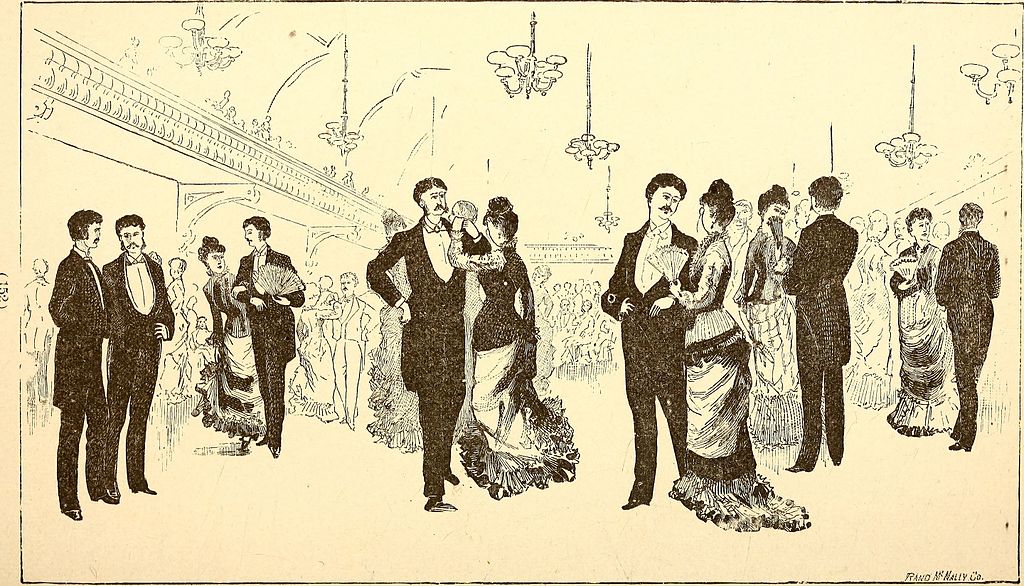“Release the Kraken”: Reading Etiquette Part II

As both a practicing writer and Co-Director of the River Styx at Duff’s Reading Series, I’ve had the opportunity to step to the mic in multiple capacities. The expectations of a reader and a facilitator of readings are very different, but both have the responsibility of engaging the audience on some level. The following advice doesn’t come from my experience as a reader of my own work because I’m not nearly as adept as the writers I mentioned in Part I. Instead, these suggestions come primarily from my experience as an organizer and facilitator of readings.
In an effort to stretch out the conversation, I posted the question, “Any last suggestions about how readers should comport themselves before, during, or after literary readings?” on Facebook. I got some varied and imaginative suggestions in response and have included some of them here as well.
Before I get to the suggestions, I want to call out what seems to be the most frequent etiquette breach readers make: time management. In general, writers are happy to have their moment on the mic and cherish it—sometimes to the point of staying on too long. Anyone who has done a group reading has encountered the writer who believes “15 minutes” applies to the undercard and not to them. After all, who wouldn’t want to hear a few more poems about falling leaves or another story about scrapbooking? That’s not malaise in the room: it’s quiet rapture. Writers need to remember how to recognize time or reading facilitators need to reinstitute the shepherd’s hook. Either one will make the listening experience more entertaining.
So after that, here is an informal list of suggestions for writers. This list isn’t about style; it is about etiquette, or maybe more aptly, professionalism. Some of the suggestions may seem basic, but you’d be surprised at how often readers are unaware of or decide to ignore these courtesies. Feel free to the identify things that are missing because there is much more to this conversation.
Pre-reading Business:
- Communicate consistently with the organizer of the reading until the reading details are worked out. Be sure that your host has your contact information and that you respond to emails quickly. There is nothing more frustrating than trying to make a visiting writer comfortable when he or she doesn’t respond to questions or requests in a timely fashion. Everyone’s busy, but your host cannot hook it up for you if you are absent from the discussion.
- Be sure your work will available for sale. Most venues will handle it for you, but it’s best to bring copies of your work even if you expect them to be there.
- Don’t ask a bookstore or state university to subsidize your proclivity for star fruit with espresso foam. Most places that support literary work do not have the resources to handle such requests. Just as importantly, you will sound ridiculous asking. None of that glitz was necessary to create the work; it shouldn’t be necessary to present the work.
Reading Stuff:
- Consider your audience when deciding what to read. Everyone (and I do mean everyone) has something else they could be doing instead of listening to your work, so be cognizant of those dynamics. As a corollary to this do not be condescending in tone or manner. (Thanks for this one, Erin Keane: @eekshecried)
- Do not bad-mouth academia while reading at a college or university. Especially when you’re getting paid to be there. (Thanks for that one, Rich Villar: @elprofe316)
- Read work that is in print whenever possible. It is important for writers to read new material to keep things fresh for themselves, but unless you’ve been doing readings for an extended period of time or are on a return visit, most of the material is going to be new to the audience. Reading the work in print is how you can give the audience the opportunity to learn about your work and sell books.
- Be prepared and know what you’re going read before you get to the mic. Don’t waste the audience’s time shuffling through papers. (Thanks for this one, Lynne Thompson.)
- Fred Von Drasek had this suggestion for both the reader and the person making the introductions: “…as a way of moderating your ego, please remember this: if I were to construct the worst possible environment to judge the worth of a piece of literature, it would probably be a room packed with fledgling MFA pome-writers and their accomplished teachers with the attending flashes of ego and attitude AND (as is mentioned above) alcohol…read the poem as it is, speak clearly, make your introductions short, and don’t be interesting. That’s the writing’s job, and if it’s not doing its job, at least that’ll keep things short…” (ellipsis his).
- Do what you have to in order to stay out of the way of the work. Stumbling around drunk and making a scene might have worked in the acoustic guitar and sign-up sheet set, but once you start getting paid or people start paying to hear you read, you’ll want to check that nonsense at the door. (I got a few different variations on this one. Thanks, Erin Keane: @eekshecried)
Post-reading Stuff:
- Don’t hide in a corner talking with your friends or family after the reading. If you’ve done your job, there will be people who you didn’t have dinner with wanting to talk with you about your work. If you’ve really done your job, they’ll want you to sign copies of your work. Make yourself as easily accessible as possible (Thanks for this one, Howard Rambsy: @blackstudies)
- As a corollary, don’t be afraid to share your ideas about writing outside of the reading. People who attend readings generally love literature and want to talk about the work. Not just the work that is been created, but the work that is ongoing and how it relates to the poetry dialogue. Be open to that conversation. (Thanks for that one, Rich Villar: @elprofe316)
- Don’t measure the success of a reading on the number of books purchased. Authors at the Duff’s Series frequently sell copies of their books, but our readings are at a bar and we have a mature community of listeners. The majority of our audience is employed and has the capital to purchase books. On the other hand, visitors to the university at which I teach rarely sell books. Simply put: students don’t have money to purchase books, no matter how effective the reader. So don’t take it personally.
- In other words, as Steven D. Schroder (@antipoetry), so eloquently summarized, “Act like you’ve been there before.”
This is Adrian’s eighth post for Get Behind the Plough.


